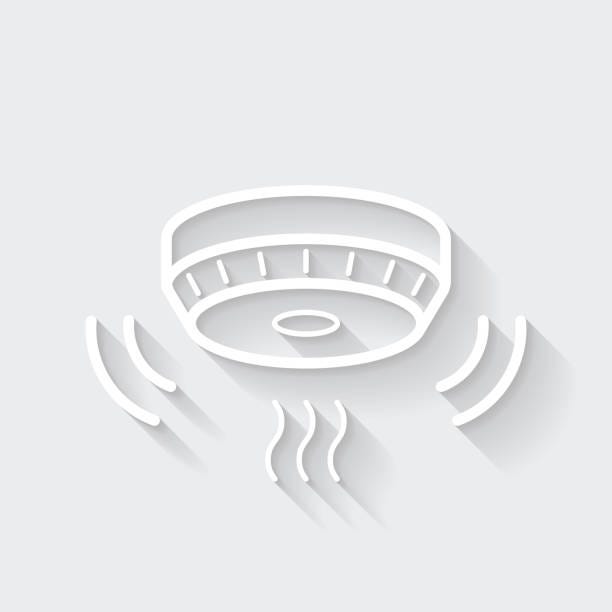
Smoke alarms are an essential part of home safety. They alert us to the presence of smoke and fire, giving us time to evacuate and call for help. However, a smoke alarm that beeps unnecessarily can be a nuisance, causing frustration and even anxiety for homeowners. In this article, we will discuss the common causes of false alarms and provide tips on how to prevent them.
Low Battery
The most common cause of a beeping smoke alarm is a low battery. Smoke alarms are designed to emit a beeping sound when the battery is low, signaling the need for a replacement. If your smoke alarm is beeping intermittently, this may be the cause. To prevent false alarms due to low battery, it’s essential to replace the batteries in your smoke alarms regularly. Many experts recommend replacing the batteries in smoke alarms every six months.
Dust and Debris
Smoke alarms are sensitive devices that can be triggered by even a small amount of smoke or debris. Dust, pet hair, and other debris can accumulate in smoke alarms over time, causing them to beep unnecessarily. To prevent false alarms caused by dust and debris, it’s important to clean your smoke alarms regularly. You can use a vacuum cleaner or a soft brush to remove any accumulated debris from the smoke alarm. Make sure to follow the manufacturer’s instructions on cleaning your specific smoke alarm model.
Cooking Smoke
Another common cause of false alarms is cooking smoke. Smoke from cooking can trigger a smoke alarm, especially if the smoke detector is located near the kitchen. To prevent false alarms caused by cooking smoke, it’s best to install a smoke alarm in the kitchen that is specifically designed for this purpose. These alarms are designed to be less sensitive to cooking smoke, reducing the risk of false alarms.
Humidity
High humidity levels can also cause false alarms. Moisture in the air can accumulate on the smoke alarm, causing it to malfunction. If your smoke alarm is located in a high-humidity area, such as a bathroom or laundry room, you may want to consider installing a smoke alarm with a built-in humidity sensor. These sensors can detect high levels of humidity and adjust the sensitivity of the smoke alarm accordingly.
Age of the Smoke Alarm
The age of the smoke alarm can also be a factor in false alarms. Smoke alarms have a limited lifespan, typically ranging from eight to ten years. After this time, they may start to malfunction, causing false alarms. If your smoke alarm is more than ten years old, it may be time to replace it with a new one. Some newer smoke alarms also come with advanced features, such as wireless connectivity and voice alerts, which can improve home safety.
Location of the Smoke Alarm
The location of the smoke alarm can also be a factor in false alarms. Smoke alarms should be installed in areas where smoke is most likely to accumulate, such as near bedrooms and in common areas of the home. However, they should not be installed near doors or windows, as drafts can cause false alarms. Additionally, smoke alarms should not be installed in areas where the temperature may fluctuate significantly, such as in garages or attics.Preventing false alarms is essential for maintaining the effectiveness of smoke alarms in protecting your home and family. By following these tips, you can reduce the risk of false alarms and ensure that your smoke alarms are working properly. Remember to replace the batteries in your smoke alarms regularly, clean them regularly, and install them in appropriate locations. If you are still experiencing false alarms after following these steps, it may be time to replace your smoke alarms with newer models.
Leave a comment